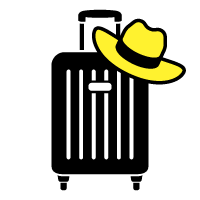TUI's Chief Airline Officer Talks Summer 2024 and Boeing Orders

Skift Take

Leaders of Travel: Skift C-Suite Series
What are the top trends impacting hotels, airlines, and online bookings? We speak to the executives shaping the future of travel.The TUI Group is a tourism powerhouse. Arguably best known for its family-friendly vacations, the company’s operation spans hotels, cruise ships, travel agencies, and digital platforms. The goal is to offer the entire value chain under a single umbrella brand.
It is also a major player in the aviation sector.
TUI owns five European carriers which collectively operate 130 medium and long-haul aircraft. These jets - supported by more than 8,000 employees - serve 140 global destinations from the Caribbean to Southeast Asia and many points in between. Around 26 million passengers flew with TUI last year, making it one of the dominant forces in the European leisure market.
At the center of it all is Marco Ciomperlik, TUI Group’s Chief Airline Officer. In a sit-down interview with Skift, he shared valuable insight into the latest travel trends and strategic growth priorities for the company’s airline division.
Skift: How is the coming summer season shaping up?
Marco Ciomperlik: Right now, it’s very good and we are very confident looking forward. As with most other airlines, we’re appreciating the current situation. If nothing [unexpected] happens then it seems to be a good year.
Do you consider current booking trends as the new normal? Or are we still experiencing a post-pandemic peak?
Nobody knows 100%. I think when you review the pent-up demand, we were all surprised by 2022 because everybody wanted to escape from home and the lockdown. Then I think in 2023, we said, ‘Is this the end of the pent-up demand?’ And then you look to this year, despite all the topics surrounding us, demand remains quite resilient. I believe what we’re now seeing is no longer pent-up demand - the situation is stabilizing.
The industry is at least back to 2019 levels revenue-wise, including inflation and other effects, but not completely with passengers. We’re almost there, but not yet, and of course, in 2019 there was no ‘pent-up demand’. I think it really depends on the economic outlook how things will develop in the next year.
Premium leisure has been one of the hottest niches of recent years. Is this something you’re also experiencing?
There's certainly a demand in that category, but when we look at our core business, around 70% is still the package holiday. Yes, there's a focus on premium leisure but we’re still serving families quite a lot. The TUI brand is positioned in the middle-to-premium category. When you look at the development of the sector, then yes, people are willing to spend more but also expecting more. For example, they are buying additional services that they haven’t done in the past.
You fly the Boeing 737 Max 8, would you consider the Max 9 in the future?
The 737 Max 9 is not in our scope as we have the Max 10 on order. We are looking forward to integrating the 10 into our fleet.
What about the 737 Max 7, is there any interest there?
No. We had a lot of 737-700s [the previous generation type], and we're getting rid of them over the next three years. I’m a fan of a very homogenized fleet. We operate 19 Boeing 787s and one 767, but even that will leave at the end of this year plus our 757s are also all gone as of last year.
TUI was one of the first operators of the Boeing 787. What is the state of play with the existing widebody fleet as the Dreamliners start to mature?
We’re currently strategizing about the future of the long-haul fleet. There is a tipping point coming where we need to decide how we deal with the next generation. All of the [787] aircraft are now entering their 10-12 year [maintenance] checks which is quite interesting as it’s not something anyone has done before. It also gives us a view about how the aircraft will perform in the future which is important for future long-haul decision making.
Looking at the leisure market - which is different from the business long-haul market - we are currently quite happy with the setup. We use [the Dreamliners] mainly westbound towards the Caribbean.
TUI currently has five airlines (AOCs) - can we ever expect those to be consolidated?
This is a good question. The traffic rights are obviously connected to the AOCs, and from a legislation point of view, you need the [separate] entities. Within our five AOCs, they operate under one TUI Airline which means that everything that is not an AOC minimum requirement is consolidated or co-located. For instance, our operations control center is based in London, and other areas are consolidated across Europe.
If there was a possibility to move even further, it must make sense, not just for a small saving. If this was the case then we could take that step but for the time being there aren’t any plans. I would say we are two-thirds on our journey to consolidate everything under TUI Airline.
Some answers have been lightly edited or shortened for clarity.
Airlines Sector Stock Index Performance Year-to-Date
What am I looking at? The performance of airline sector stocks within the ST200. The index includes companies publicly traded across global markets including network carriers, low-cost carriers, and other related companies.
The Skift Travel 200 (ST200) combines the financial performance of nearly 200 travel companies worth more than a trillion dollars into a single number. See more airlines sector financial performance.





